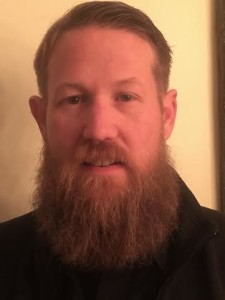Heidi G. Frontani
Heidi Frontani, a professor of geography at Elon University for more than 17 years, and a development geographer with particular interests in Africa, died suddenly of a heart attack on February 26, 2016, at the age of 50.
Heidi Glaesel was born on April 19, 1965, and grew up in Queens, New York. She attended Cornell University as an undergraduate, receiving a bachelor’s degree in human development.
In 1987 she participated in Harvard University Institute for International Development’s “World Teach” program. She spent 18 months at a secondary school in rural, western Kenya, teaching geography, mathematics and biology to ninth, tenth, and eleventh grade students. This experience was the start of a life-long passion for Africa.
On returning to the U.S., Frontani turned her academic attention to geography, studying at the University of Wisconsin at Madison for a master’s degree then a doctorate, but in both cases pursuing her interest in Africa. Her master’s thesis, entitled “The Masai and the Masai Mara: People, Park, and Policy,” examined the relationship between park management approach and conservation effect, particularly the extent to which participatory, bottom-up co-management can not only protect biodiversity, but also local people’s livelihoods.
In 1993 she received a university travel award to visit Kenya for research on “Resource Conservation on the Kenyan Coast: A Study in the Political Ecology of the Malindi-Watamu Biosphere Reserve.” The following year she received a Fulbright-Hayes Group Projects Abroad scholarship for intensive Swahili language training in the summer and a Foreign Language and Area Studies scholarship to study Swahili during the next academic year. This was all leading towards her doctoral fieldwork for which she received a Fulbright Dissertation Fellowship.
This field research during 1995 and 1996 involved two months in Tanzania and ten months in Kenya to investigate nearshore, indigenous marine resources. She was based at a marine conservation office but spent many weeks visiting and living with fisher people and their relatives, conducting interviews and participant-observation. She was interested in the nature and extent of an indigenous marine management system and fledgling co-management initiatives near marine protected areas, as well as documenting changes in fishing methods over time. Her dissertation, completed in 1997, was entitled “Fishers, Parks, and Power: The Socio-Environmental Dimensions of Marine Resource Decline and Protection on the Kenya Coast.” She subsequently did some comparative work with participatory fisheries management in the U.S.
Following her PhD, Frontani spent two years in Ghana teaching high school-aged kids before joining the faculty at Elon University, North Carolina, as professor of geography. Although U.S.-based, her passion for Africa continued. She broadened out from her specialist interest in fisheries and protected areas to development studies more broadly.
At Elon she taught courses including International Development, and Africans and African Development. She also contributed to Elon’s Core Curriculum, the set of courses and experiences that are shared by every undergraduate. Director of the Core Curriculum program, Jeffrey Coker said, “Heidi has been a beloved and just invaluable faculty member within the core curriculum for a long time. She has been one our best contributors to the global experience course. She has also taught core capstones that were fantastic. … Anybody that ever met Heidi would just be in awe of her passion for Africa, for her students, for teaching … She was always giving and contributing to the larger community.”
Frontani shifted much of her research focus from East Africa to West Africa. Among her published research were studies on China’s development initiatives in Ghana, the social integration of Togolese and Liberian refugees in Ghana, and Peace Corps and National Service programs in Ghana. She also published several encyclopedia entries in Oxford Bibliographies Online: African Studies and The Oxford Encyclopedia of African Thought, as well as more than 30 book reviews on Africa, resource management, parks, development, and fisheries.
At the time of her death, she was working on two books: one on the Rockefeller Foundation’s and Wellcome Trust’s disease control and public health initiatives in the early twentieth century to several countries in Africa that were then British colonies, and another on outstanding African leaders.
As well as being a popular teacher and active scholar, Frontani held a number of leadership roles at Elon University over the years. She served as coordinator of the geography program from 1998 to 2011, chair of the Department of History and Geography from 2009 to 2012, and interim coordinator of the African and African-American Studies program from 2014 to 2015. She was the faculty adviser for Visions, Elon’s environmental magazine, and for Gamma Phi Beta, the Geography Honor Society. Recently she was also the co-chair of the implementation and assessment team for the Presidential Task Force on the Black Student, Faculty, and Staff Experiences.
Frontani recognized how strong mentors had been important to her own development and committed to being a student mentor herself. Although Elon did not offer majors in her areas of specialization of geography and African studies, she mentored students with these interests, particularly through the Periclean Scholars program, an academic service learning program which involved students in sustainable development projects, with a different country the focus each year.
She was the faculty mentor for the 2010 class of Periclean Scholars who, under her guidance and in conjunction with Ghanaian partners, built and established a health center in Kpoeta, Ghana. Charles Irons, chair of the History and Geography Department said, “She is the most effective Periclean Scholars mentor that we’ve had and has mentored students to make really profound contributions.”
In 2014, Frontani was named one of three senior faculty to be a Senior Faculty Research Fellows through the two academic school years of 2015-2016 and 2016-2017. Furthermore, in Fall 2015 she was one of seven faculty members who was named a Leadership Scholar and was involved in teaching Leadership Research.
Frontani was committed to promoting ‘development from within’ rather than development driven by outsiders’ aid and intervention. She wrote a weekly blog, African Development Successes, to share excellent initiatives that Africans are taking to make their communities, countries, and the world a better place. The aim was to counter the overly negative coverage of Africa that dominates the mass media. Her stories, which were also compiled into a searchable database, profiled a vast array of effective leaders from across the continent from up-and-coming entrepreneurs, to sports stars, to established statesmen. The blog was read by thousands of people in more than thirty countries, and the stories have been reproduced in newspapers and periodicals internationally.
Frontani became a member of the American Association of Geographers in 1999, and regularly presented papers at Annual Meetings and Regional Division conferences, as well as serving as Chair of the Research Grants Committee from 2006 to 2009. She was also a member of the African Studies Association and the Ghana Research Council.
Heidi Frontani devoted her life’s work to a deeper public understanding of the African continent and the development that spurs its progress. She will be remembered as an inspiring teacher and a tireless advocate for a shared global understanding. Leo Lambert, President of Elon University said, “We are a stronger university because of Heidi. The students she taught and mentored, and the values they carry into this world, are perhaps her greatest legacy.” Family and friends around the world will miss her greatly.
She is survived by her husband, Dr. Michael Frontani, an associate professor in the School of Communications at Elon University, as well as her parents, Erika and Henry Glaesel, her sister and family, and her son, Dante.
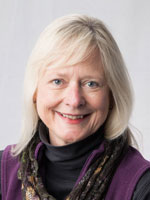

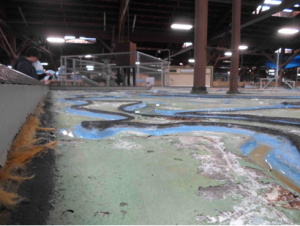
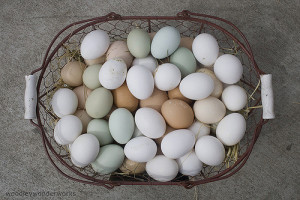
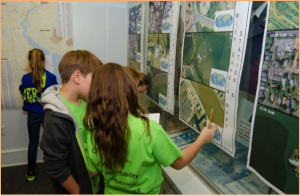
 Second Issue of ‘GeoHumanities’ Now Available
Second Issue of ‘GeoHumanities’ Now Available ‘The AAG Review of Books’ Volume 4, Issue 1 Is Now Available
‘The AAG Review of Books’ Volume 4, Issue 1 Is Now Available
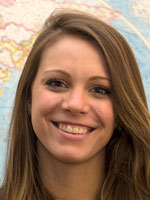
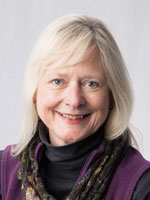 Now is the winter of our discontent. I have always liked that line, the first of King Richard III. I know it is not really about winter, but it has always evoked for me the vaguely uncomfortable feeling I have during this season. It is cold, the days are short, and all I want to do is hibernate. But here in Texas we are seeing the first signs of spring. Yes, at the end of January. The robins are back, passing through on their way north; the narcissuses are about to bloom; and the trees are budding. Hope is in the air as I write this column. So let me write about two different topics, hiring and award selection. I promise to end each topic with an optimistic twist.
Now is the winter of our discontent. I have always liked that line, the first of King Richard III. I know it is not really about winter, but it has always evoked for me the vaguely uncomfortable feeling I have during this season. It is cold, the days are short, and all I want to do is hibernate. But here in Texas we are seeing the first signs of spring. Yes, at the end of January. The robins are back, passing through on their way north; the narcissuses are about to bloom; and the trees are budding. Hope is in the air as I write this column. So let me write about two different topics, hiring and award selection. I promise to end each topic with an optimistic twist.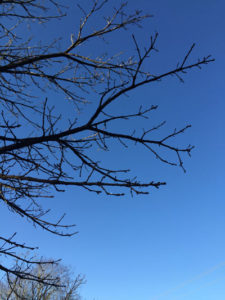
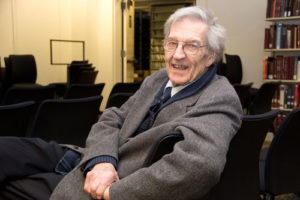 A near-capacity crowd gathered on January 21, 2016, in the Geography and Map Division at the Library of Congress in Washington, D.C., to hear a talk by the doyen of the history of geography, Dr. Geoffrey J. Martin, Professor Emeritus at Southern Connecticut State University and the official archivist of the American Association of Geographers (AAG) for more than 30 years.
A near-capacity crowd gathered on January 21, 2016, in the Geography and Map Division at the Library of Congress in Washington, D.C., to hear a talk by the doyen of the history of geography, Dr. Geoffrey J. Martin, Professor Emeritus at Southern Connecticut State University and the official archivist of the American Association of Geographers (AAG) for more than 30 years.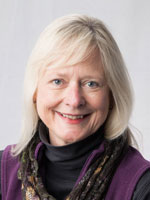
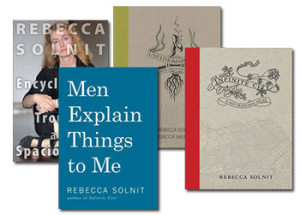 Rebecca Solnit: ‘Mapping the Infinite City’ – A talk on the ‘infinite trilogy’ of atlases
Rebecca Solnit: ‘Mapping the Infinite City’ – A talk on the ‘infinite trilogy’ of atlases Explore the Growing List of AAG 2016 Field Trips, Workshops and Excursions
Explore the Growing List of AAG 2016 Field Trips, Workshops and Excursions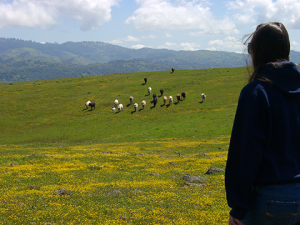
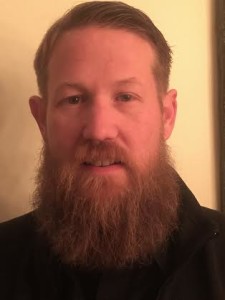
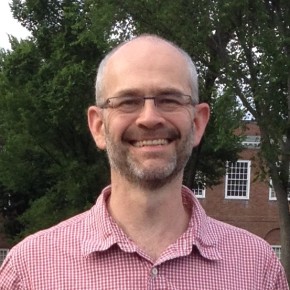
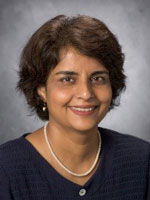
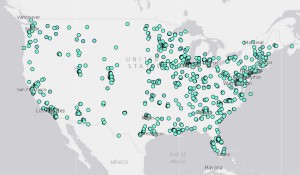
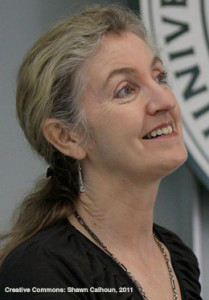
 This talk will explore what maps can do, or at least what these particular maps do, the ways these projects are counters to the rise of digital navigation and celebrations of what maps did in other eras, and how cartography lets us grasp or at least gaze at the inexhaustibility of every city, the innumerable ways it can be mapped. Session details forthcoming.
This talk will explore what maps can do, or at least what these particular maps do, the ways these projects are counters to the rise of digital navigation and celebrations of what maps did in other eras, and how cartography lets us grasp or at least gaze at the inexhaustibility of every city, the innumerable ways it can be mapped. Session details forthcoming.
